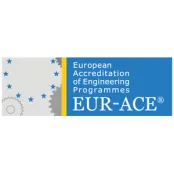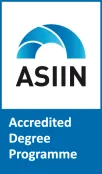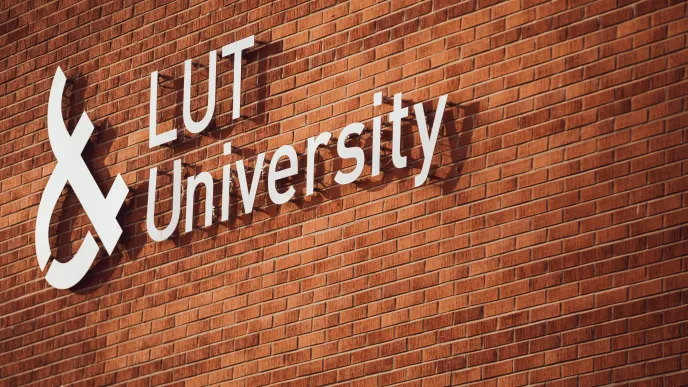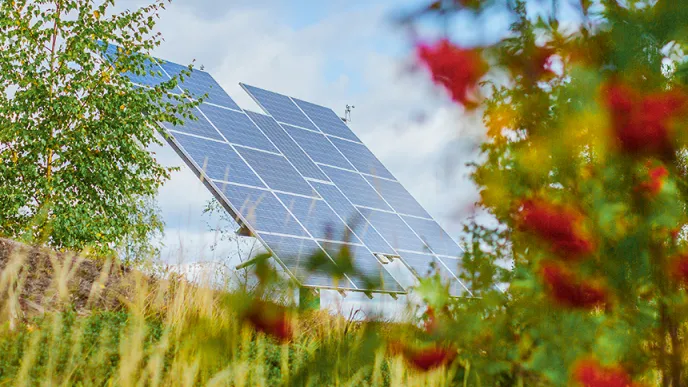The newsletter is your guide to what's happening on LUT campuses and the student community as well as to bachelor's and master's programmes updates and admission instructions. Newsletters will be delivered to your email once a month.


The programme is accredited by international EUR-ACE® and ASIIN standards for high quality degree programmes in engineering.
This field has a continuous need for professionals to oversee nuclear power plants, including reactors, power conversion systems, and safety systems, taking into consideration and putting into practice advances in science and technology.
Nuclear power is a key component in the transition towards clean and feasible energy systems. Nuclear power has an excellent track record in providing abundant and dispatchable clean electricity for the electrification of the society. Nuclear heating and nuclear propulsion are emerging as new applications. In all applications, nuclear power must be safe.
At LUT, nuclear engineering research and education focus on three aspects: nuclear power plant engineering, nuclear safety, and reactors for new applications – including next generation technologies.
This Master's programme will give you a comprehensive understanding of how to utilise nuclear power safely. You will learn how to design nuclear reactors. Nuclear power plant engineering focuses on how different components in nuclear power plants work together, what specific requirements apply to components used in nuclear power plants, how to design for radiation protection, and how to consider the life cycle of power plants, including fuel and waste management.
Nuclear safety focuses on preventing accidents and on how a plant is operated safely if accidents happen. Research on next generation reactors focuses on small modular reactors.
Your studies will emphasise light water reactors, but you will also learn the basic principles of other reactor types, including fast reactors and heavy water and gas cooled reactors.
Admissions guide 2026
What will you learn in the programme?
In this programme, you will learn about nuclear reactors, nuclear power plants, nuclear energy and safety, and power plant processes relevant to power conversion and nuclear safety.
In addition, you will learn about energy economics, environmental impacts, savings and emissions.
In this master's programme, you will acquire:
- competence covering the design principles of nuclear reactors and nuclear power plants; you will also understand the nuclear fuel cycle from cradle to grave;
- professional skills enabling you to utilise different numerical methods of reactor physics and thermal hydraulic safety analysis; you will learn about radiation protection and reliability engineering;
- knowledge of applying and developing mathematical models to solve energy technology problems; you will be able to design energy technology related equipment, plants, processes and systems;
- managerial skills to manage and organise both national and international projects.
Degree structure and studies
The Master's Programme in Nuclear Engineering is a two-year programme. It leads to the degree of Master of Science in Technology, M.Sc. (Tech.), which is 120 ECTS credits.
The programme includes core, advanced specialisation, minor and elective studies. Read more in this academic year’s curriculum.
Quality of education
The high quality of education is one of the most important principles on which we will not compromise. International programme accreditations ensure the continuous development of our education and the international recognition of the degrees of our graduates. LUT University was one of the world’s top 300 universities in the THE World University Rankings 2024, which is one of the most highly regarded university ranking systems.
The systematic quality assurance procedures that we have developed over a long period guarantee the high quality of our degree programmes and the strong competence of our graduates in the future labour market. The underpinning elements of our education quality are the contents of our degree programmes, which are based on innovations of scientific research and the needs of the working world, and active student–teacher interaction. We evaluate the quality of our education through several follow-up procedures and feedback channels (e.g., course feedback, graduate feedback, alumni feedback, thesis commissioners’ feedback).
Career prospects
To ensure the safe and reliable long-term operation of existing plants and to facilitate the construction of new plants in the future, there is a constant need for new professionals in nuclear engineering.
Our graduates have a clear understanding of what is required of safe nuclear power systems and how nuclear power is utilised to change the overall energy system towards cleaner processes.
Graduates from our programme work in every field related to nuclear power: in power production, in research and development, for nuclear industry subcontractors, for regulatory authorities, for companies building nuclear power plants, and for companies providing fuel and waste management and other services to nuclear operators.
Graduates have versatile professional capabilities. They may work as project engineers, designers, analysts, developers, and managers, eventually even achieving top management positions. LUT graduates typically deal with power plant systems or components, company work processes, safety and regulations, etc.
Contact Admissions Services
The LUT Admissions Services are here to assist you in all matters related to applying to international bachelor's and master's programmes.
For questions about admission criteria or entry requirements, please reach out to us by email: admission@lut.fi.
Chat with our students
Do you want to know more about studying at LUT, student life, or housing on LUT's campuses?
For questions about admission to bachelor's or master's degree studies, please email admission@lut.fi.




